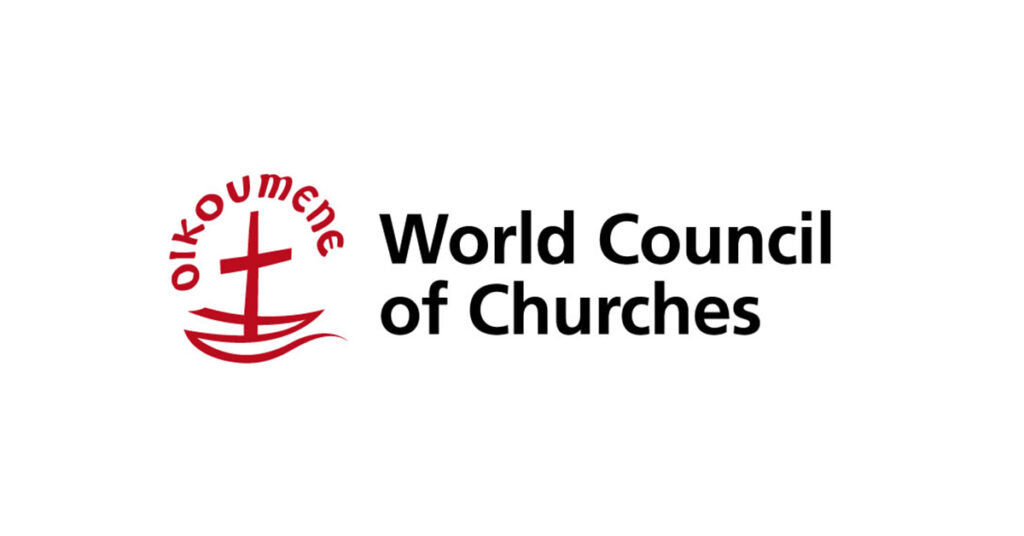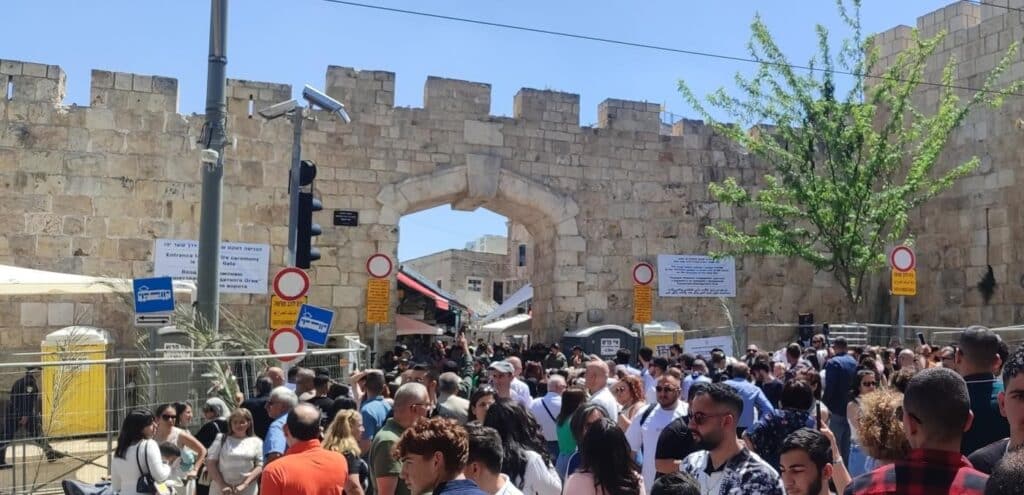Holy Fire Saturday in Jerusalem banned to Jerusalemites, marked with Israeli checkpoints and violence
On Holy Fire Saturday, hundreds of Christian worshipers seeking to enter Jerusalem’s Old City for the celebration were prevented; others were met with heavily enforced checkpoints, physical and verbal harassment, and widespread restrictions by Israeli police and border forces.

At the main checkpoint near the New Gate, hundreds of worshipers were held for over an hour. During this time, many were pushed, beaten, and subjected to derogatory remarks. At least three individuals were arrested. Eyewitnesses reported hearing police officers shout, “Why are you here? Go home,” and “We will not allow you in.”
Those who managed to pass encountered two more checkpoints in quick succession. At the second checkpoint, under the heat of the sun and in a narrow alley, the crowd was again delayed and jostled. At the third, access to the Greek Orthodox Patriarchate was blocked by barricades and security forces. A particularly alarming incident occurred when a scout leader had a pistol pointed at his head by an officer—marking the first time a firearm was visibly used inside the patriarchate to threaten the crowd during this event. The traditional scouts’ parade was cancelled this year, as scout groups were denied entry.
A priest at one of the checkpoints told the faithful that he was powerless to assist them. Even the Apostolic Nuncio, present among the worshipers, was not allowed to proceed. Inside the Patriarchate, additional barricades and a heavy security presence contributed to a climate of fear and intimidation.
Local Christians described these as the most severe restrictions imposed since 1967, despite prior assurances from Israeli authorities that access would be eased. Hanna Kirreh, a member of the World Council of Churches (WCC) Jerusalem Liaison Office advisory committee, described the treatment as “deliberate and provocative,” adding, “We ask for freedom of worship and access to our holy sites, but each year it becomes worse. Our presence is under threat.”
Mayadah Tarazi, also a member of the JLO advisory committee, lamented: “What should have been a moment of spiritual joy turned into a painful reminder of the daily oppression and restrictions we face under occupation.”
This year’s Holy Fire observance coincided with a rare leap-year convergence of the Eastern and Western Christian calendars. Bishop William Shomali, Latin Patriarchal vicar, observed: “There was discontent among many local Christians and some pilgrims due to the closures and the lack of dialogue at some barriers. The numbers allowed to reach the Holy Sepulchre plaza were less than the capacity of the plaza itself which seemed, during the Orthodox Holy fire ceremony, half filled.”
Dr Audeh Quawas, member of the WCC central and executive committees, reflected: “I believe in the Resurrection and that Christ’s tomb is empty. But the checkpoints and violence remind us of our responsibility to pursue justice, equality, and peace in His name.”
The World Council of Churches reaffirmed its longstanding position:
- Jerusalem must be protected as a city sacred to the three monotheistic religions—Judaism, Christianity, and Islam.
- The historical and legal status quo of the holy sites must be upheld and respected by all authorities.
- The right to worship freely must be guaranteed to all, without discrimination, restriction, or intimidation.
The WCC continues to document and denounce all forms of discrimination and restriction targeting Christians and other religious communities in Jerusalem, remaining steadfast in its vision of the city as one of peace, coexistence, and shared holiness. The WCC also continues to call on its partners worldwide to use their influence with the government of Israel to ensure that freedom of worship is guaranteed for all and on equal footing. The WCC general secretary, Rev Prof. Dr Jerry Pillay, said: “It is highly unacceptable and disrespectful that Christians are not allowed to celebrate the most sacred and significant beliefs and events of their faith, the death and resurrection of their Lord and Saviour, Jesus Christ.”

